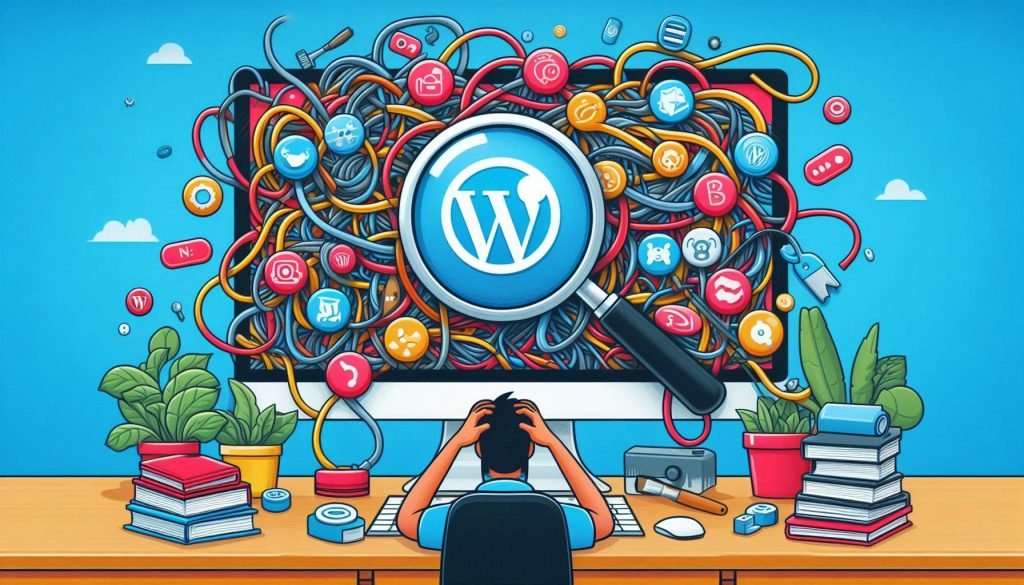Plugin conflicts are among the most common issues in WordPress. These occur when two or more plugins have conflicting functions or code, causing errors such as broken features, slow load times, or even a complete site crash. You’ll often see this bug after updating or installing a new plugin.

Solution: Fixing WordPress Plugin Conflicts
1. Identify the Problem
To troubleshoot plugin conflicts, first, confirm that a plugin is indeed the issue. Disable all your plugins and check if the problem persists.
Step-by-Step Fix:
1. Disable All Plugins:
• Log in to your WordPress admin panel.
• Go to Plugins > Installed Plugins.
• Select all plugins, then choose Deactivate from the bulk actions dropdown and apply the changes.
2. Activate Plugins One by One:
• Start reactivating your plugins one at a time.
• After each activation, check your site to see if the issue reappears.
• When you activate a plugin that causes the issue, you’ve identified the conflicting plugin.
2. Check for Updates
If the conflicting plugin is essential, check whether an update is available:
• Go to Plugins > Installed Plugins.
• See if there is an Update Now button next to the problematic plugin.
• Updating plugins often fixes compatibility issues.
3. Replace the Plugin
If the issue persists after the update, you may need to find an alternative plugin that serves the same function but doesn’t cause conflicts.
4. Debugging Mode
To see more details about the conflict, enable WordPress debugging:
• Open your wp-config.php file via FTP or your hosting file manager.
• Add the following line:
define( 'WP_DEBUG', true );
• This will display detailed error messages that help in pinpointing the issue.
Conclusion
Plugin conflicts can disrupt your WordPress website, but by methodically disabling, updating, and re-enabling plugins, you can quickly resolve the issue. Always keep your plugins up to date and test new installations or updates in a staging environment to prevent live site downtime.